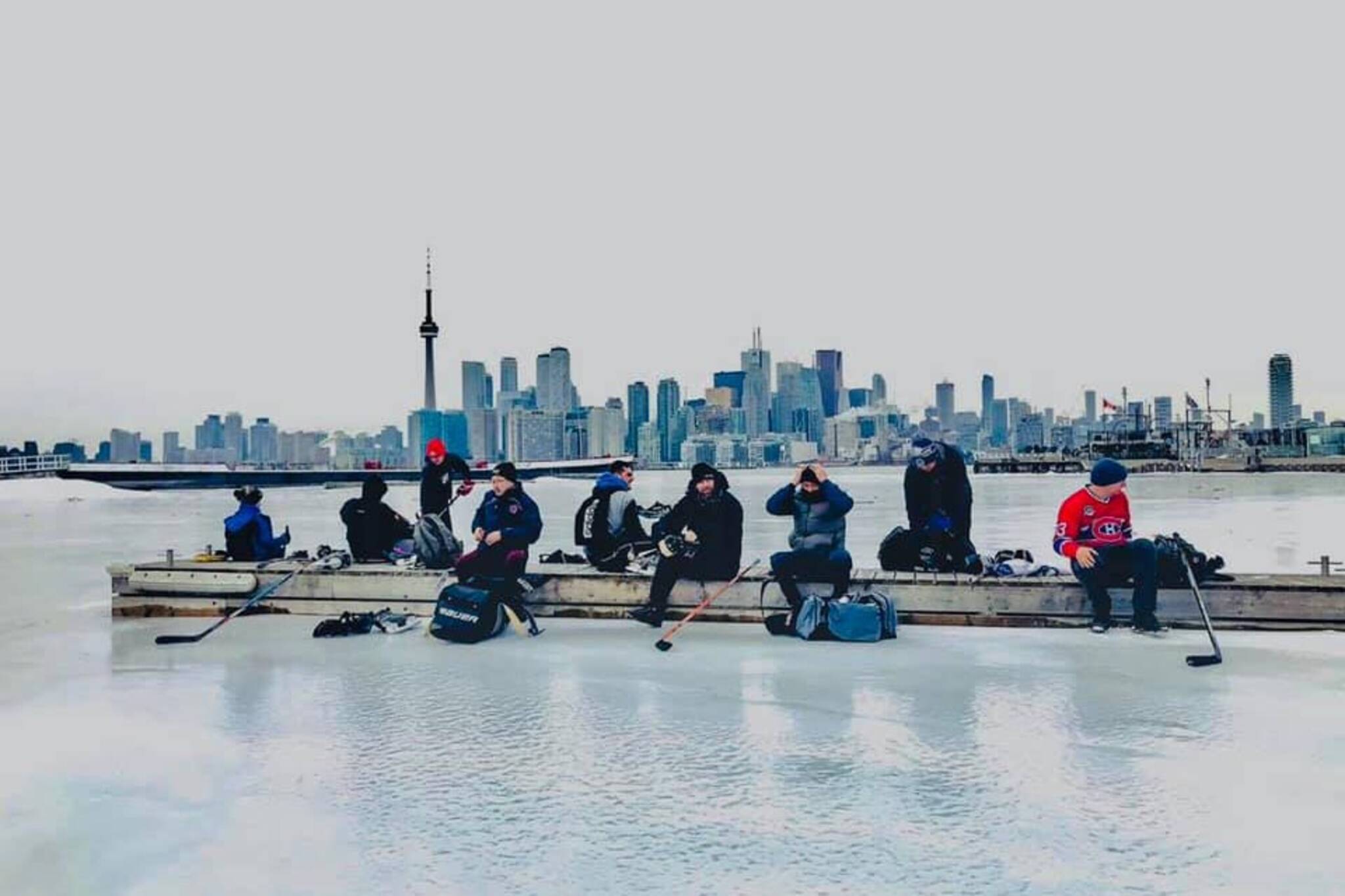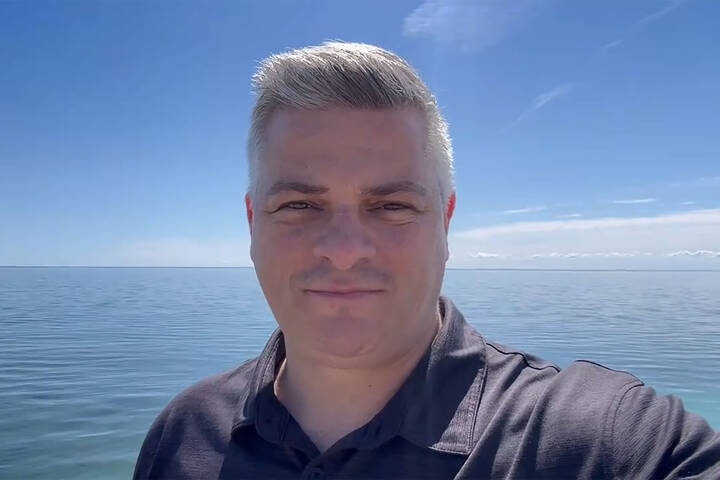
Toronto is using Lake Ontario as a skating rink
For most people in Toronto, extreme cold temperatures equate to hunkering down indoors and grumbling about how they should move to L.A.
And then there are the renegades—the brave souls who stand up to Mother Nature with their thoroughly insulated heads held high, enjoying her icy bounty in the most-extreme and unusual of ways.
Aaron Leighton, who's been catching some attention with his "skating on Lake Ontario" videos, is one of those people.
"It's very rare... like catching lightning in a bottle," says the 42-year-old born and raised Torontonian of perfect lake-skating conditions.
"You need an extended cold snap after rain for the ice on Lake Ontario to be safe and smooth enough to skate on," he explains.
"We skate on Lake Ontario purely for the experience. If you take ice conditions into consideration, it doesn't compare to regular rinks, ice conditions on regular rinks are much much better."
It's been so cold in Toronto people are skating on Lake Ontario 📹 Josh Smart pic.twitter.com/XR3zietA5a
— blogTO (@blogTO) February 13, 2019
Outdoor adventurers Brendan Carberry and Julian Ganton go far beyond simply skating around the harbour. For them, the ice surrounding the Toronto Islands is a place for people to gather and connect over their shared love of exploring the outdoors.
"There are lots of people who go out and enjoy the ice, both on the harbour and the small waterways between the Toronto Islands," says Carberry.
"Enthusiasts on the island have formed a community around spending time on the ice, with folks who shovel off rinks for shinny, test the ice, and share information about ice conditions at different locations."
The New York engineer and biologist discovered this vibrant island community through his girlfriend, who is from Toronto, though he himself also "grew up skating on lakes."
And with so much wide-open space to be found, he and his friends have been able to get creative with their activities.
Someone went kite skating across Lake Ontario in #Toronto - 📹 Brendan Carberry https://t.co/sWqonbdEQT pic.twitter.com/TuhMmfAyAA
— blogTO (@blogTO) February 13, 2019
Carberry recently filmed Ganton, who owns Toronto Island SUP, kiteboarding across Lake Ontario to much acclaim.
It's not something you see every day, but it's not entirely unheard of either.
"Sailing on ice has a long history in the area, with many folks using ice 'boats' or handheld ice sails," says Carberry.
"Using a kite on skates is basically just an adaption of that idea to fit the equipment we had available. It's much faster than kiteboarding on water because the skates have very little drag, so we were using the smallest kites we could."
Fun as it looks, it's important to remember that these men aren't amateurs, and that hanging out on a frozen lake could lead to serious injury or death.
As someone who has actually fallen through what *appeared* to be solid Lake Ontario ice (and only survived by sheer chance), this is incredibly dangerous and stupid. Particularly as a published piece on a day when it's barely above 0°C in Toronto.
— Adam Foord (@adamfoord) February 13, 2019
"No ice is safe ice and we cannot stress this enough," says Sarah Sutton of PortsToronto. "Ice in Toronto’s harbour is never safe and PortsToronto's Harbour Master's Office advises members of the public to stay away and not go on the ice."
And it's not only fluctuating temperatures that skaters should be concerned about.
"Ice breaking activity in the harbour to enable ferry service and lake currents make the surface unpredictable, even on the coldest days," says Sutton. "Further, warmth coming off dockwalls makes the ice in the Harbour extremely thin in some areas."
Toronto Police Marine Unit do patrol the harbour to keep people off the ice, she says. Skaters like Leighton and Carberry haven't had any problems with the law, but they both stress the importance of being prepared for the worst.
Someone is skating on the Lake Ontario. #lakeontario #frozentoronto #skatingonthelake pic.twitter.com/nbZ5K2WBad
— Kenji H Yamamura (@kenjoe1977) February 2, 2019
"Learning to read the ice is an important skill that comes with experience, and it involves understanding a combination of factors including surface texture, water currents, proximity to shoreline structures, and outside temperatures that inform us about ice condition, thickness, and general safety," says Carberry.
There's also a lot of safety gear involved, including handheld ice picks, throw ropes, personal floatation devices and fresh, dry clothes.
"ALWAYS bring a change of clothes," says Leighton. "Because if falling in doesn't get you, the hypothermia afterwards certainly will, as there is absolutely nowhere to go to dry off and get warm."
Leighton hasn't fallen through, but Carberry has (and not by surprise, either).
"Several times I've been checking out a thin section or trying to skate on ice that I knew was thin, because newly formed ice is often the best for skating, and I've gone through," says Carberry. "Those days I was fully prepared to get wet, and considered it good safety training."
Not everyone is so lucky (or experienced), which begs the question: Is a few hours of fun worth risking your life in a very real and horrible way? Police have said time and again that it's not.
Those who are tempted to get out onto the ice of Toronto's Harbour should remember that there are plenty of beautiful public outdooor skating rinks in and around the city, some of them with stellar views of the lake.
So, grab a hot chocolate and take a few laps without the risk of drowning. It's not as hardcore but it's way, way smarter.
Aaron Leighton
Latest Videos
Latest Videos
Join the conversation Load comments







